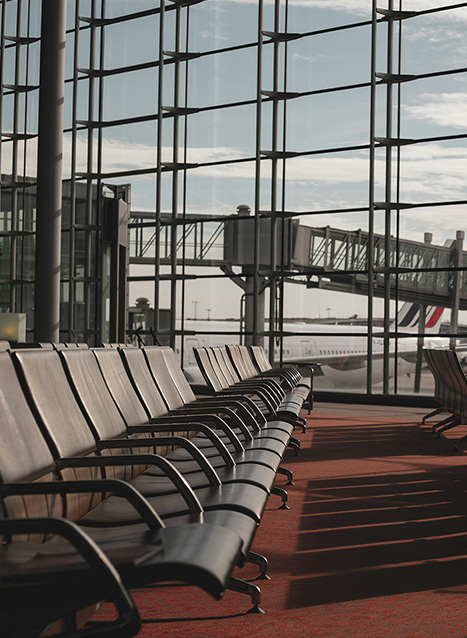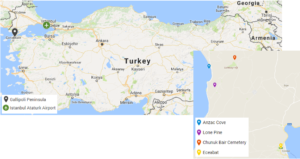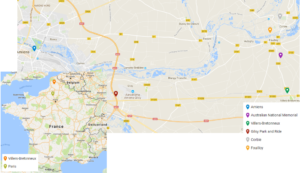Evacuations from High-Risk Locations Call +44 (0)1202 308810 or Contact Us →

Travel Information for Anzac Day 2018
17 Apr 2018
Anzac Day 2018 will be celebrated on 25 April and marks the contribution of servicemen and women from Australia and New Zealand. The national day of remembrance is also observed in the Cook Islands, Niue, Pitcairn Islands, and Tonga; it was previously a national holiday in Papua New Guinea and Samoa.Anzac Day was originally formulated to mark the anniversary of the first campaign that lead the large-scale loss of life of members of the Australian and New Zealand Army Corps (ANZAC) who fought against the Ottoman Empire during World War One. More than 10,000 ANZAC troops died after the amphibious invasion of Turkey.
Key Points
- Anzac Day 2018 will be observed on 25 April. Thousands are expected to attend events in Australia, New Zealand, Turkey, and France.
- It is a national day of remembrance in New Zealand and Australia to commemorate veterans and fallen soldiers; it was originally devised to commemorate soldiers who fought at Gallipoli against the Ottoman Empire in World War One.
- 2018 marks the Centenary of the Battle of Villers-Bretonneux, France where larger crowds than usual are expected.
Situational Summary
Travel Information: Anzac Day 2018 will be celebrated on 25 April and marks the contribution of servicemen and women from Australia and New Zealand. The national day of remembrance is also observed in the Cook Islands, Niue, Pitcairn Islands, and Tonga; it was previously a national holiday in Papua New Guinea and Samoa.
Anzac Day was originally formulated to mark the anniversary of the first campaign that lead the large-scale loss of life of members of the Australian and New Zealand Army Corps (ANZAC) who fought against the Ottoman Empire during World War One. More than 10,000 ANZAC troops died after the amphibious invasion of Turkey.
How is Anzac Day commemorated?
Traditionally Anzac Day is commemorated with memorial services at dawn in locations across Australia and New Zealand, the same time as the landings at Gallipoli during World War One. Later in the day, marches are held in cities and smaller centres, usually beginning or ending at war memorials.
Canberra
In Canberra, Australia, the national memorial service is held at the Australian War Memorial. From 0200 until 1500hrs on 25 April, the following road closures/diversion are set to be in place:
- Traffic from Limestone and Fairbairn Avenue diverts onto Treloar Crescent
- Anzac Parade closed from Constitution Avenue including the Blamey Crescent and Currong Street intersection.
A free bus service will also be provided to and from the Dawn Service and National Ceremony for those who have pre-registered.
Gallipoli
Further commemorations are held at Gallipoli in Turkey, overnight from 24 to 25 April. Events at Gallipoli are often oversubscribed and have some security challenges. In the past few years, the Australian government have warned of the potential for a nonspecific terror attack at events in Gallipoli. This led to ‘G20-like’ security at the event in 2017, effectively closing down the peninsula and forcing everyone in and out to go through rigorous checks. No subsequent attack occurred. Road closures are common during the event for security reasons, which also hamper travel to commemoration sites. At present, Turkey is considered a MODERATE risk country due to the threat of terrorism, civil unrest, and the impact of political upheaval.
The scheduled series of events is to occur as so:
24 April
- 2130: Coach registration commences
- 2200: Anzac Commemorative Site opens
- 2300: Reflective program commences
25 April
- 0300: Coach registration closes (last arrival)
- 0530: Dawn service commences
- 0930: Lone Pine Service (Australian memorial service)
- 1130: Chunuk Bair Service (New Zealander memorial service)
- 1245 (approximately): Coach Loading and departures at Chunuk Bair
It is important to be prepared for travel to Gallipoli. Most travellers to Turkey will require a visa. The easiest way to apply for this is online via the Turkish governments e-visa website. Visitors to Gallipoli commemorations will require an attendance pass to enter the sites, which will need to be retained throughout their time at Gallipoli. Turkish authorities will check these passes and identification of travellers; it is important that travellers have their passports on them for these commemorations.
The weather conditions can be challenging and highly variable. Overnight, the temperature may drop to around or below freezing and during the day the temperature can be very hot; heavy rain and strong winds have been reported in the past few years. The commemoration sites are in remote, exposed areas that offer little shelter.
Travellers can expect to walk around 8km during commemorations, often on difficult terrain including steep hills and cobbled paths. Leaving the commemorations can take time and travellers are advised to avoid onward travel plans for 25 April. The Australian Department of Veteran Affairs advises travellers to commemorations to use organised tour services for ease of access to commemorative sites as access of private vehicles is at the discretion of Turkish authorities. There are limited food facilities available on-site; travellers should bring an adequate supply of food and water (open bottles of liquid will not be allowed at commemorative locations).
If concerned about the conditions in Gallipoli, travellers should seek medical advice to ensure that they can safely travel to Turkey. There are limited health facilities in the area. Not only should travellers ensure that they have medical travel insurance, but they should also ensure that they have all prescriptions prepared and mobility aids if necessary. Travellers who do plan to take prescriptions with them are advised to contact their local Turkish diplomatic service to ensure that the import of such medication does not contravene Turkish law.

Villers-Bretonneux
In France, the Centenary of the Battle of Villers-Bretonneux commemorations are similarly held overnight from 24 to 25 April. It marks a hugely significant battle for Australian troops on the western front during World War One. Airport-style security is also set to be in place for events located at the Australian National Memorial outside of the village of Villers-Bretonneux. Organisers are expecting a large number of attendees at the event due to it being the centenary of the 1918 Battle of Villers-Bretonneux; attendance passes are required.
The scheduled series of events is to occur as so:
24 April
- 2315: Amiens train station shuttles commence
- 2330: Glisy Park and Ride Opens
25 April
- 0000: Australian National Memorial Opens
- 0000: Pre-service presentations and information commence
- 0200: Official program commences
- 0300: Last Scheduled Amiens train station shuttle
- 0430: All guests asked to be seated
- 0530: Official commemoration commences
While France and Turkey have different threat profiles, it also important to be prepared for travel to Villers-Bretonneux and the Australian National Memorial. Rolling strikes look set to impact France until June 2018, meaning that journey times may be impacted. It is advisable to get early trains on 23/24 April to allow for disruption. It is also important to arrive on-site early to allow time to pass through security, which will be busier than usual this year; the security screen process can take up to an hour alone. It is important to adhere to the instructions of security officials in France. Local Authorities advise that the road between Villers-Bretonneux, Corbie, and Fouilloy will be closed for approximately 24 hours from 1400 on 24 April.
Travellers should note that due to the overnight nature of events, there is the potential of very cold and wet weather. Just like Gallipoli, there is no permanent shelter at the Australian National Memorial in Villers-Bretonneux. While the event is expected to be less taxing physically than Gallipoli, seating may be limited, and visitors should expect to walk 300-metres uphill after arriving at the Memorial. There are no parking facilities at the site, with access available only through the ‘park and ride’ facility, including for those travelling with tour operators. There will be a shuttle service between Amiens Train Station and the ‘park and ride’ at Géant supermarket, in Glisy.
Travellers should also ensure that they have insurance in place before visiting France and ensure that the import of any prescription medication does not contravene French law.

Further events are expected to be held at Longueval in France for fallen New Zealander soldiers and at Australia’s and New Zealand’s diplomatic missions around the world.
SECURITY ADVICE
TravelLowAs Anzac Day events include large public gatherings, expect travel disruptions as enhanced security measures are implemented. Extra security measures aimed at preventing vehicular terror attacks will also be in place at events across Australia and New Zealand. Travellers are advised to allow for extra travel time on 24 and 25 April if in Australia or New Zealand, especially if in a major urban area.
Both France and Turkey have suffered from terror attacks in recent years. Events in both countries will involve enhanced security measures to prevent any potential attack. Travellers should adhere to official instructions as there is the potential that security forces will respond to noncompliance with an assertive or aggressive response.
Solace Global would not advise clients of the need to employ enhanced security measures when visiting Australia, New Zealand, or France. However, careful journey management planning is advised if travelling in rural areas. Whenever at large gatherings it is always advised to be vigilant, know your exit routes, leave valuables at home, keep your belongings well concealed, and maintain awareness of who is around you and what they are doing. Travellers to Turkey may wish to consider the use of a pre-arranged, locally-vetted driver for most areas. Travel to the southeast of the country should only be undertaken with physical security measures in place. All travellers are advised to use travel-tracking technology with an intelligence feed for all travel in the region. This should enable a traveller to be alerted of any security updates within their vicinity, and to update others of their movements in case of an emergency.